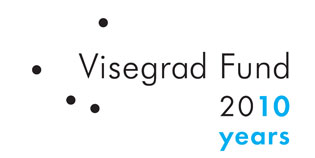 Polish cinema began its steady increase in production and cinema attendance in 2005, when a new cinematography bill led to the establishment of the Polish Film Institute (PFI, www.pisf.pl). As the main public investor, PFI co-finances new film productions, supports distribution and international promotion, and shapes the education of Polish filmmakers and their viewers. The other public sources of funding for cinema in Poland are the Television Agency of the Polish public broadcaster Telewizja Polska (www.tvp.pl) , The Ministry of Culture and National Heritage (www.mk.gov.pl), and several other public institutions including the new system of Regional Film Funds. An important part of the Polish film market are big film studios such as KADR (www.kadr.com.pl), OKO (www.sfoko.com.pl), PERSPEKTYWA (www.studioperspektywa.pl), TOR (www.tor.com.pl), ZEBRA (www.zebrafilm.pl) and Documentary and Feature Film Production Company (WFDiF, www.wfdif.com.pl) .
Polish cinema began its steady increase in production and cinema attendance in 2005, when a new cinematography bill led to the establishment of the Polish Film Institute (PFI, www.pisf.pl). As the main public investor, PFI co-finances new film productions, supports distribution and international promotion, and shapes the education of Polish filmmakers and their viewers. The other public sources of funding for cinema in Poland are the Television Agency of the Polish public broadcaster Telewizja Polska (www.tvp.pl) , The Ministry of Culture and National Heritage (www.mk.gov.pl), and several other public institutions including the new system of Regional Film Funds. An important part of the Polish film market are big film studios such as KADR (www.kadr.com.pl), OKO (www.sfoko.com.pl), PERSPEKTYWA (www.studioperspektywa.pl), TOR (www.tor.com.pl), ZEBRA (www.zebrafilm.pl) and Documentary and Feature Film Production Company (WFDiF, www.wfdif.com.pl) .
Poland has several hundred private production companies, which are the main source of new titles. The Polish Filmmakers Association (www.sfp.org.pl) reports that the majority of independent producers has an average of 1-2 films per year, while the leaders in the market such as Opus Film (www.opusfilm.pl), Akson Studio (www.akson-studio.pl) and Apple Film (www.applefilm.pl) produce 4-6 each year. Apart from the natural division between companies specializing in feature and documentary film, some producers such as Ozumi Films (www.ozumifilms.com) and MS Films (www.msfilms.pl) are more engaged in international co-production and others such as Van Worden (www.vanworden.pl) and MTL Max Film (www.mtlmaxfilm.pl) excel in big commercial titles.
Since the creation of PFI, the Polish film market has produced an average of over 40 feature movies per year. In 2010 the Institute granted 128.3 million PLN (32.3 million EUR) to support projects in production and development stages as well as script development. PFI supported 138 titles in the "Film Production" Operational Program including 77 feature productions in the "Author cinema" category, 38 in the "History topic films" category, 11 in the "Films for youth and family audience" category and 12 in the "Films with a big attendance potential" category. Not all of them will enter the production stage in 2010.
The financed titles include 35 international co-productions including features such as Blind Watching directed by Andrzej Jakimowski internationally recognized for his film Tricks, produced by Zjednoczenie Artystów i Rzemieślników (www.zair.eu); Futurogical Congress, a new film from Bashir's Waltz director Ari Folman produced by Opus Film (www.opusfilm.pl); Salvation by one of the most significant modern Russian filmmakers Ivan Wyrypajew produced by Baltmedia (www.baltmedia.pl); and 13 documentaries and 3 animated films including the new film from Brothers Quay titled The Hour-glass Sanatorium based on the novel by Bruno Schulz produced by Opus Film.
The most significant Polish films of 2010 include titles that gained international recognition such as Essential Killing by Jerzy Skolimowski produced by Prasa & Film (www.prasaifilm), a title that won the special jury prize at the 2010 IFF Venice (www.labiennale.org) and is currently competing for an Oscar nomination, as well as Venice directed by Jan Jakub Kolski and produced by Akson Studio, awarded for the best artistic contribution at the 34th Montreal World Film Festival (www.fmm-montreal.org) . The Polish Oscar candidate All That I Love, directed by Jacek Borcuch and produced by Prasa & Film, also gained both local and international recognition, finishing in 4th place in the Polish film box office for 2010. This year the Polish Film Festival in Gdynia (www.fpff.pl) moved its dates to May, instead of its traditional fall schedule, with the Golden Lion prize given to the historic drama Little Rose directed by Jan Kidawa-Bloński and produced by WFDiF, while the critically acclaimed drama Christening directed by Marcin Wrona and produced by ODEON Film Studio (www.odeon.com.pl) won the Silver Lion prize. Best directing debut went to Marek Lechki for his drama titled Erratum, produced by his company Harmony Film Production in co-operation with Heliograf (www.heliograf.pl) and Voiceland (www.voiceland.pl).
2009 was a record year for Polish cinema attendance reaching 32.9 million viewers. In 2010 the record will be hard to beat mainly because the decreased cinema attendance in the first half of the year following the April plane crash which resulted in the death o the President and many leading Polish figures and the morning period that followed. The results of the first six months of 2010 were 18.4 million viewers, which is a significant decline from the same period in 2009. However, a notable increase in attendance can be observed in the second half of the year, when a record opening weekend attendances occurred with six films. One of these was the premiere of the comedy Cake directed by Patryk Vega and produced by Magic Hour Film Studio, reaching third place in the overall Polish box office for 2010. Another recent success is Maiden Vows (War of Love) directed by Filip Bajon and produced by Studio Filmowe Kalejdoskop (www.kalejdoskop.art.pl), an adaptation of a Polish classic comedy written by Aleksander Fredro which was released on 8 October 2010 and has already been seen by 500,000 viewers.



















